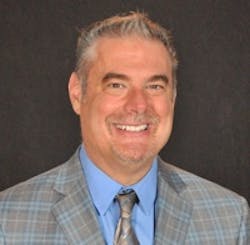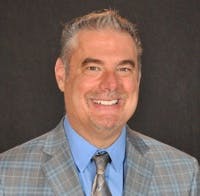From DDS to CEO: From managing mouths to managing people
Thirteen years ago, at the age of 38, I retired from seeing patients—not because I had a health issue or lost my license but because my team and I built an organization that needed someone to oversee it. I had to put the handpiece down and trade it in for a computer screen as I went from DDS to CEO. Since then, we have grown from 30 employees to 110 employees, and we have increased our income by more than 400%. We now own eight practices and manage five others with an additional 70 employees. I went from managing mouths to managing people. The "people" thing is slightly more difficult and requires a different mindset.
Different but the same
Yes, being a CEO is different from being a practicing dentist, but many of the skills are similar. You must be a great communicator, whether you are enrolling a patient in treatment or promoting your vision to your employees. When you are treatment planning, you must make sound and definitive decisions. The same is true when running a mini dental support organization (DSO). As the dentist, you are accountable for your patients’ health. As the CEO, you are accountable for the company's health. When you’re dealing with procedures like a crown prep or a root canal, you must have systems. The same is true with when dealing with employees.
Our greatest asset becomes our biggest challenge
When I started as a practicing dentist, my biggest asset was my hands, or what I could produce. No matter what happened, whether someone quit or if we had staff issues, I could still produce. I was the engine that made the machine go. As we grew, that changed. Going from one practice, to two, to eight, I quickly found out that my employees had become my biggest asset. Also, our company could produce much more as a team than I could alone. It's pretty simple: 20 dentists can produce more than one.
Nowadays, since I don’t see patients, all production is done by my team of employees. In case you didn't notice, when I talked about our growth I said, "we built this," not "I built this." My employees have superseded me as the engine for our company. If I were to leave, the machine we built would still go on—maybe not as efficiently, but it would definitely go on. If all of my employees quit tomorrow, we are done. The machine will die.
Today, I am the CEO to more than 200 employees (not all of whom are in dentistry). I estimate that more than 60% of my leadership team’s daily activities are related to employee management or human resources. While the employees (not the practice owner) are ultimately the engine of growth, managing those same employees becomes the biggest challenge with increased organizational size and complexity.
You’d better have a plan
With success comes size, and with size comes a larger staff. With a larger staff come challenges, which increase exponentially as more human beings enter the equation: Where do we find them? What do we pay them? How do we train them? How do we keep them? How do we motivate them to support our vision? How do we ensure a fair and rewarding workplace? How do we get rid of them when that unfortunate but sometimes unavoidable necessity arises? I don’t recall these subjects being covered in dental school, so you’d better have a plan and it had better be a good one.
Just like you have a plan or system when you do a root canal, you must have a system when it comes to human resources. When you do a root canal, you know what films you need and what files and irrigation you will be using. You know how and when to use all of this equipment to have a successful outcome. The same philosophy should apply when dealing with HR. You need to have a system for hiring, firing, benefits, vacations, sick days, and various other details in order to have successful HR. There are right ways and wrong ways of performing these fundamental business functions. We use a software-driven platform to standardize and automate many of the routine administrative activities involved in managing a large team of people, and just as importantly, we take full advantage of the expert human resource management and legal advice that comes with this platform.
Somewhat lower tech but no less important is our employee handbook. It has all of our HR protocols and systems in one place. Think of your employees as football players and the employee handbook as the playbook. Are they playing on a 100- or 50-yard field? Are they allowed to use cell phones or not? While I must set some of these policies, I allow the team to be part of the rulemaking process whenever possible. Your team will be much more likely to follow the playbook if they have some input. Now, I am not saying you should let them set the vacation policy . . . but if they set the rules for cell phone usage, they will probably follow them.
Dear practice owner: You’re already a CEO
You already know most of what I am telling you. I may be a full-time CEO, but so are you. I hope you realize it. I know how tough it is to see patients and run a business—just make sure you spend time working on the business, not just in it. Whether you are a dentist and CEO or a full-time CEO, you must pay attention to the business of dentistry. You can be the best clinical dentist around, but if you don’t have decent business skills, you will fail. To have a successful career, you must realize that your business skills are as important as your clinical skills. You have systems for and devote training to your clinical expertise, and the same should be true for your business.
Also remember that your biggest asset is your team. You need to trust them and give them responsibility. The bigger you get, the more you have to rely on systems that guide your managers and employees to exercise their responsibility without your direct oversight or instruction. Sometimes they will be a challenge. The key is make sure they are part of the solution. Engaging your team and keeping them happy may be the best business decision you can make.
Dr. Martino founded Freedom Day USA, a growing national movement that provides pro bono dental care for veterans, active military personnel, and military families. He is a major supporter of the Harrison County Humane Society where he has been honored with the dedication of the Martino House for Cats and Dogs, which serves as society headquarters.

